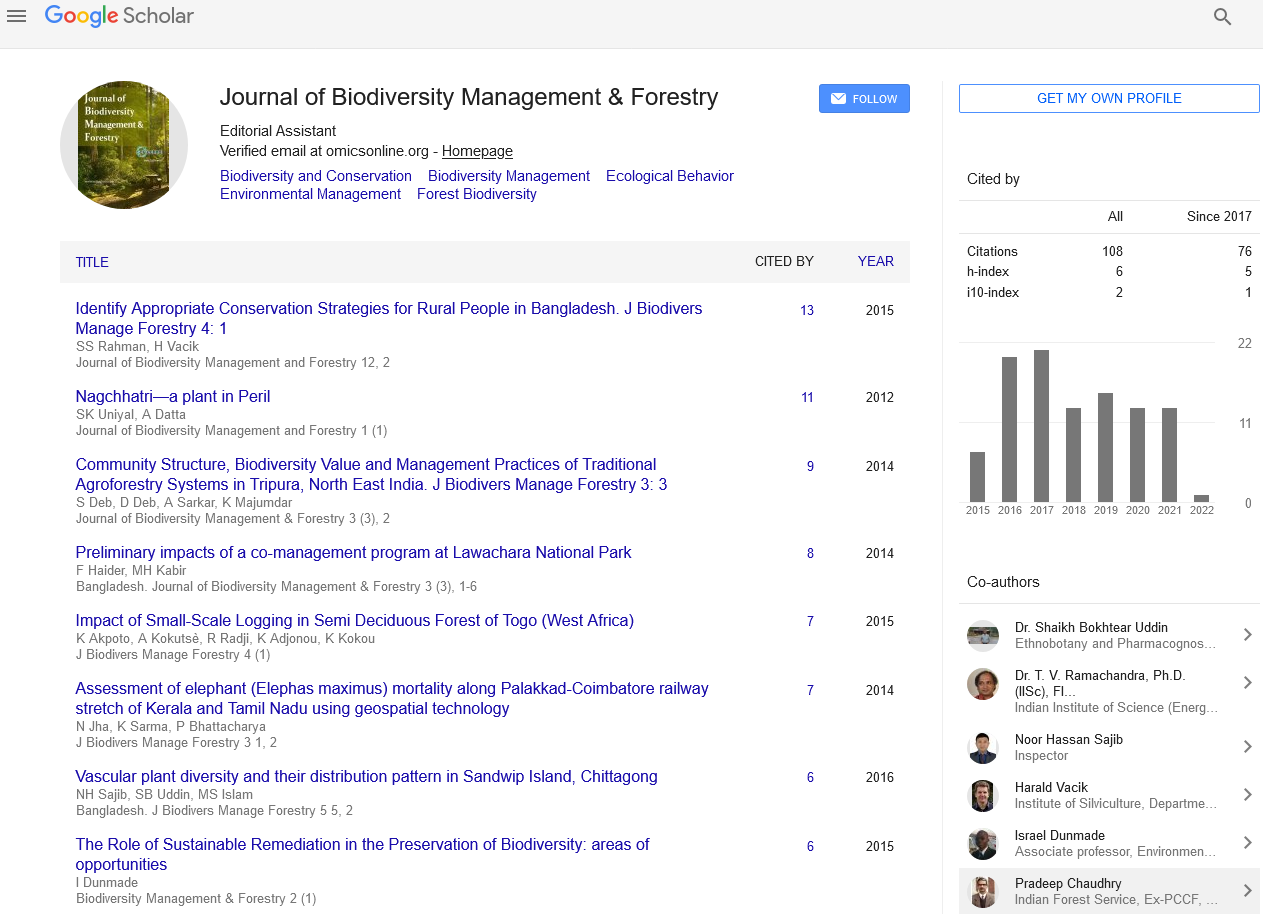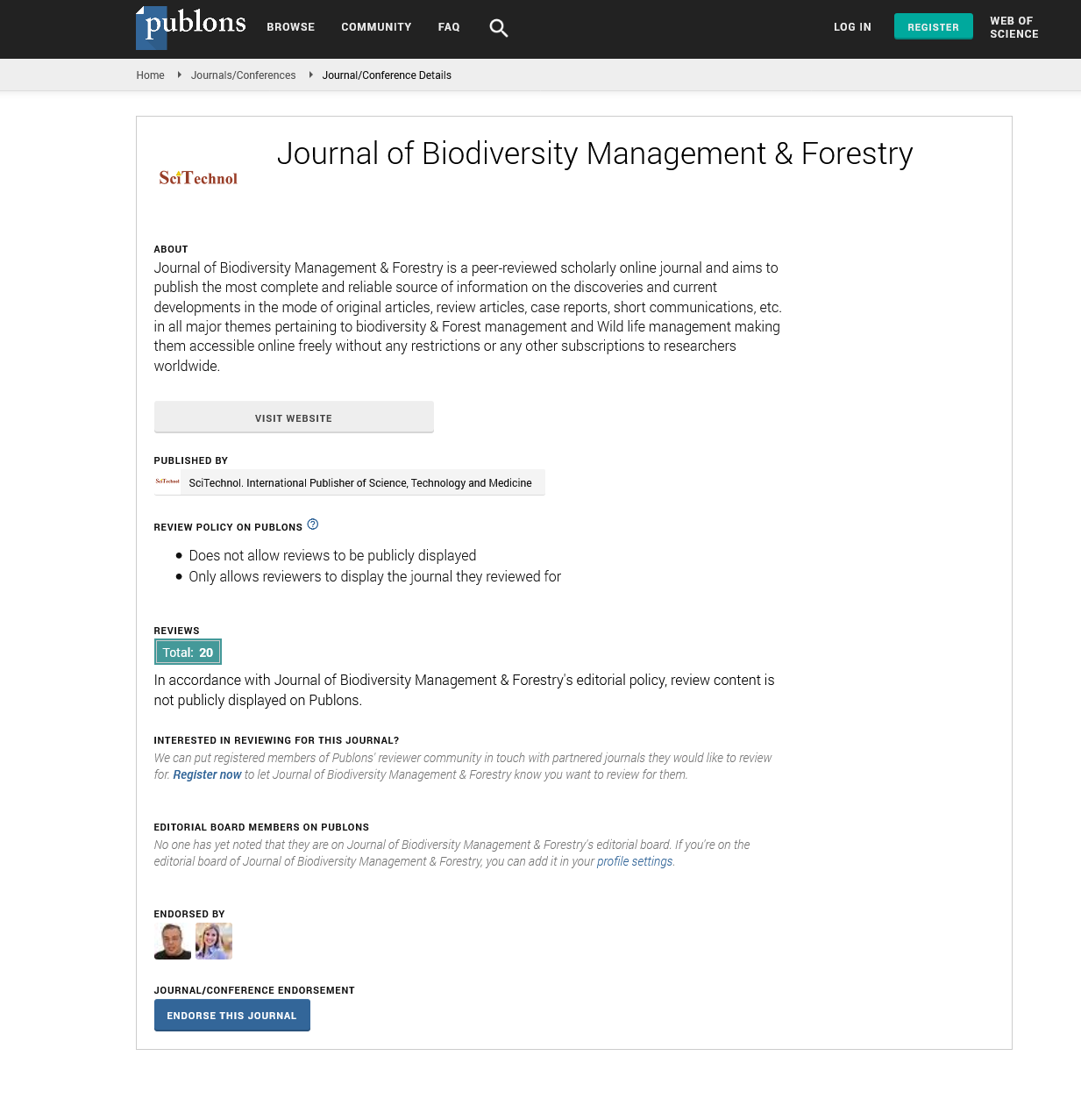Adaptive potential of Queen Scallops (Aequipecten Opercularis) to climate change: Enhancing resilience through probiotic supplementation
Ines Kovacic
Juraj Dobrila University of Pula, Croatia
: J Biodivers Manage Forestry
Abstract
Climate change is already exerting significant pressure on marine ecosystems, primarily due to rising sea temperatures and decreasing ocean ph. levels. Projections indicate that over the next 50 years, ocean temperatures could increase by 2°C, while ph. levels may drop by 0.2 units. These shifts pose serious challenges, particularly for aquaculture and food quality. In this study, we investigated the effects of climate change on the queen scallop, Aequipecten opercula is (Linnaeus, 1758), under simulated future environmental conditions. Additionally, we evaluated the impact of a nutrient-enriched diet supplemented with the probiotic culture Lactiplantibacillus plant arum I on scallops in both native and climate-altered environments. To assess these influences, we measured the scallops’ morphometric parameters before and after one month of controlled exposure. Furthermore, we analysed commercial quality traits and somatic indices across all experimental conditions. Our findings suggest that queen scallops show promising resilience to changing environmental factors, particularly when their diet is supplemented with the probiotic Lpb. Plantarum I. This adaptation could offer a viable strategy for maintaining aquaculture productivity and food quality in the face of on-going climate change.
Biography
Ines Kovacic has pioneered research on the adaptive responses of marine organisms to climate change, focusing on innovative approaches to improving aquaculture sustainability. Drawing on extensive experience in marine biology, environmental science, and food quality assessment, her work integrates ecological modelling and applied probiotic research. Her methodology builds on climate resilience frameworks, emphasizing organism adaptability under altered environmental conditions. This holistic approach not only supports marine conservation efforts but also enhances food security through sustainable aquaculture practices.
 Spanish
Spanish  Chinese
Chinese  Russian
Russian  German
German  French
French  Japanese
Japanese  Portuguese
Portuguese  Hindi
Hindi 
